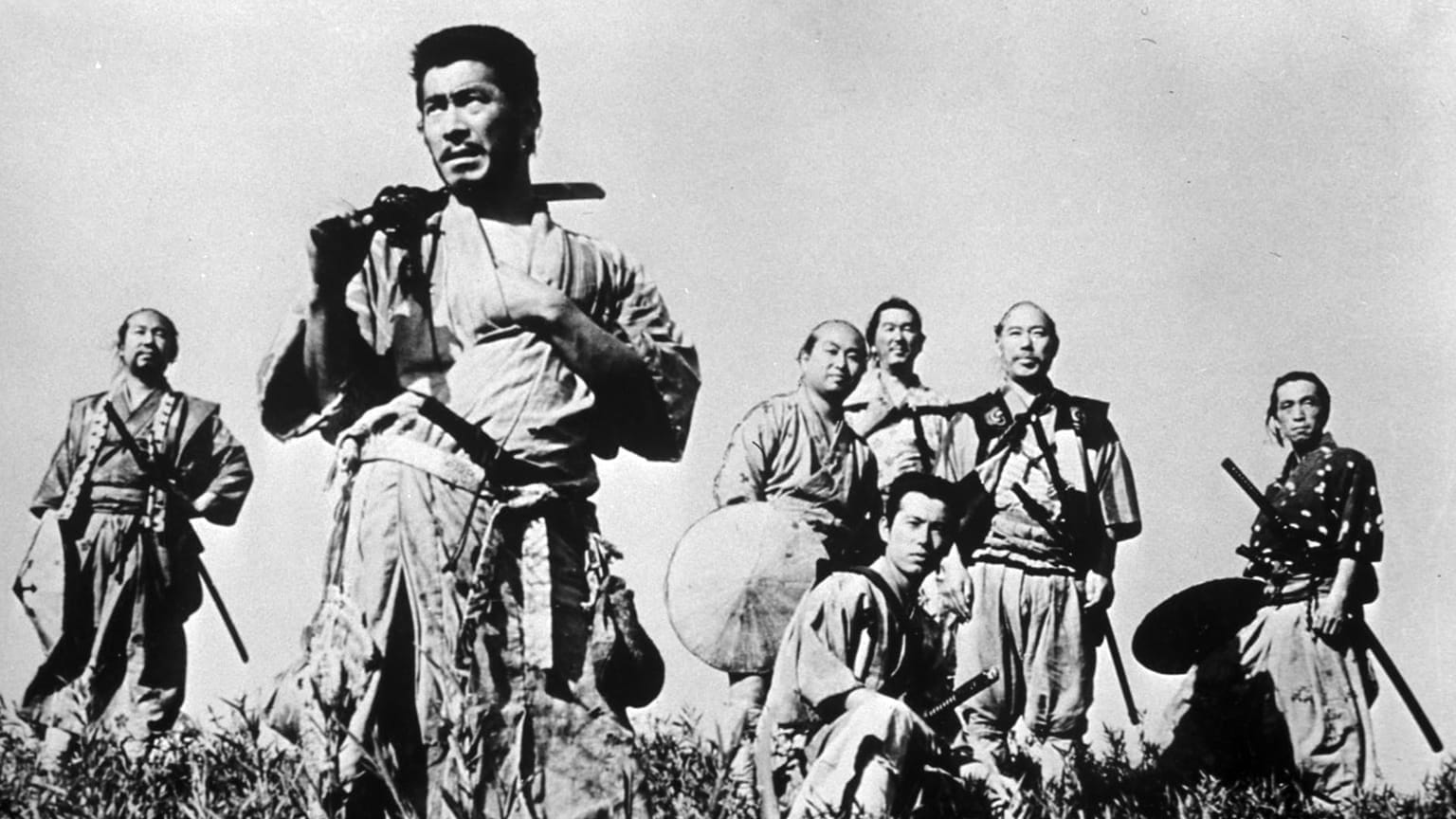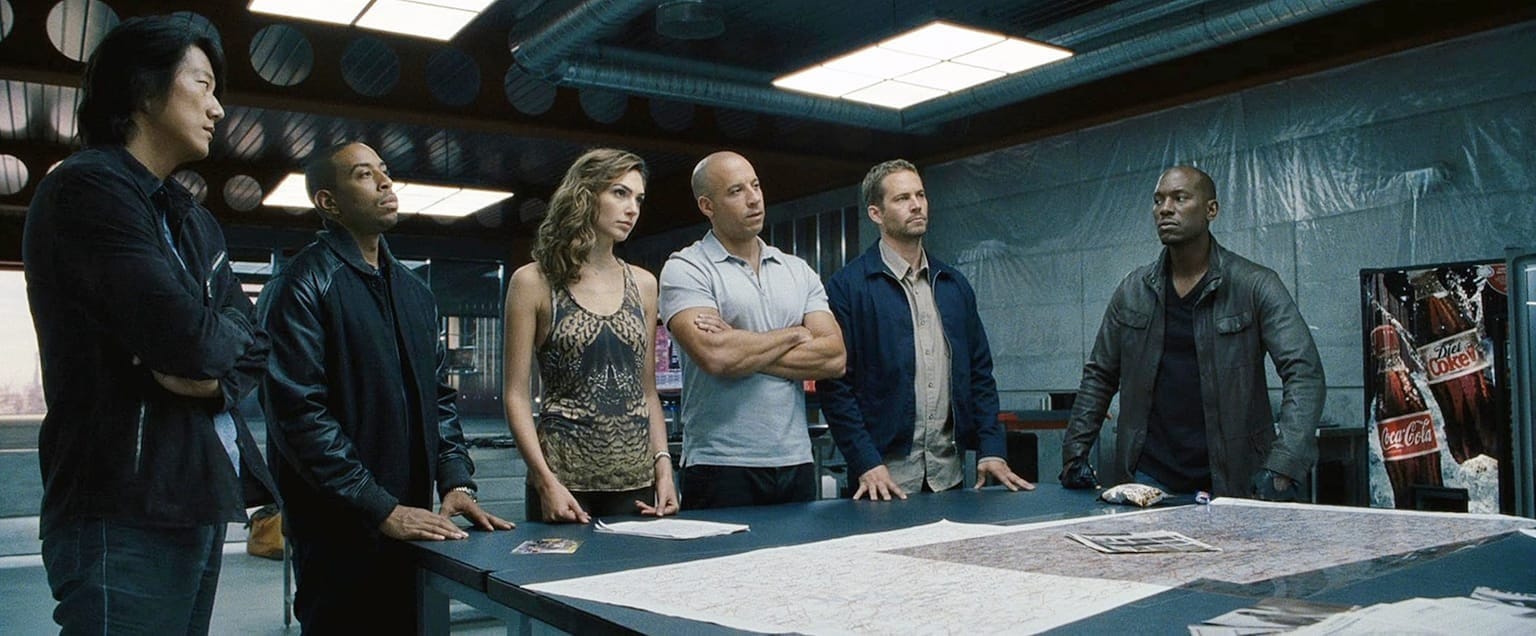Originally published on Flaming Hydra, a cooperative of independent writers and artists. Subscribe to the newsletter here.
The first hour or so of Ryan Coogler’s Sinners is a classic of that unnamed but easily recognized film genre which we’ll call “the Squad Assembles.” We follow the Moore twins, both played by Michael B. Jordan, in and around Clarksdale, Mississippi, as they pull together the crew that will operate their juke joint that very night. An old bluesman is recruited out of his Jim Crow corner of the train station to play piano. A conjure woman leaves the plantation to run the kitchen. The Chinese grocers whose stores straddle the color line in town are drafted into tending bar and painting signage. A sharecropper leaves the cotton fields and enlists as the joint’s doorman. The movie scarcely needs to tell us what it’s up to: The old gang is getting back together, member by member, each with a specialty or hidden talent that will bear in some way on the events to come, just like in The Guns of Navarone or The Dirty Dozen or The Great Escape or The Sting or any of the Ocean’s movies or the Fast & Furious series. Everyone will have a job, and there will be a job for everyone. Everyone will fit somewhere.
You can find examples in the cinema of other countries—Rififi in France, Seven Samurai in Japan—but the Squad Assembles genre really is a product of a particular time in a particular place: postwar 20th-century America. Latent yearnings from that era run just beneath the surface of these movies. Maxximilian Seijo picks up on them in his spiritedly idiosyncratic reading of Inglourious Basterds. He discerns in Quentin Tarantino’s film a “desire for the figure of the Nazi,” by which he means a desire, displaced onto the Nazi villains, for what the actual Nazis provoked in us: a full-scale military and industrial mobilization to destroy them—a “social wholeness,” in Seijo’s phrase, that was dependent on total war.

All the movies in the genre are fantasies in some way of a social wholeness. As Seijo suggests, it is no coincidence that so many of them are set during World War II—during that U.S. wartime period of (nearly) full employment, the largest Squad Assembles production in history. This was a potent moment along every dimension, a sudden expansion in industrial capacity that promised not just a rebalancing of power relations in the workplace and the home, not just a boost to regular people’s purchasing power, not just a world historical priapism for Tom Brokaw, but also a vast refiguring of the variables in the system’s moral calculus, with social need privileged over profit.
(It is no coincidence, either, that the Squad Assembles movie emerged from the American motion picture industry, which was and still is organized around the parceling out of well-defined tasks among a team of specialists. These are also movies about the circumstances of their own making.)
The idea of full employment has been too long in the hands of the technocrats for any of the old cultural feeling to endure. White paper by white paper, the country’s Poindexters have defined full employment down to the point that it is now understood as a statistical benchmark of acceptable immiseration, some unemployment being necessary, so they say, to the long, twilight struggle against inflation. But true full employment always meant just that: no involuntary unemployment. Everyone has a job, and there is a job for everyone. And the Squad Assembles movies, even the bad ones, are some of the last remaining cultural expressions of that ideal. They are a dream of everyone fits somewhere, costarring Ludacris.

Traces of the war mobilization live on vestigially in the genre’s social dynamics, even as the movies have strayed from the war itself: in the ever-present recruitment montage, like a sort of draft in miniature; in the moments of homosocial bonding and the hard-won foxhole solidarities and the depictions of self-interest dissolving into a sense of shared duty; in the surpassing guyness of it all that has persisted despite the grudging conscription of women into the proceedings. (Nora Ephron knew exactly what these movies are—weepies for boys.) What we have now, in the Squad Assembles genre, are old war movies without the war: differently situated people, mostly dudes, each possessing a talent that compensates for another’s weakness, coming together as a team to enact some vision that’s bigger than any one of them.
Sinners is pushing a lot of the same buttons, but something radical happens when a Squad Assembles movie is set down into Jim Crow Clarksdale in the interwar period. The idea of full employment evokes something different here, in the heart of the Southern plantocracy, where the wartime bonanza will never arrive for a lot of people and where a discontent over its uneven distribution will power the Black uprisings of the following decades. (Bayard Rustin identified “How can I get a decent job?” as the key political question for Black people in the United States in 1942, when the national unemployment rate was just 3.26 percent—full employment in the technocratic sense, evidently not full enough.) As the historian David Stein has demonstrated, the guarantee of work for anyone who wants it has long been at the center of Black freedom movements, advocated by everyone from Coretta Scott King to the Black Panthers, a cornerstone of what W.E.B. Du Bois called the “abolition democracy” of Reconstruction.
Watch the squad assemble in Sinners. Each member exits a different corner of Mississippi’s plantocracy: the segregated train station, the hut on the plantation, the whites-only and Blacks-only grocery stores, the cotton field. Weeks before he was murdered, Martin Luther King Jr. called for a work stoppage among Black industrial and domestic workers, teachers, and students, aimed—as Clyde Woods reminds us—“at the Mississippi Delta plantation bloc.” He had come to believe that starving the plantocracy of the labor that fed and fattened it was the only way to break it for good, just as, a century earlier, the Confederacy was sunk only when enslaved people laid down their tools and joined the Union lines.
Watch the squad assemble now and see, perhaps, a dream of a different sort of social wholeness, not that of the battlefront and the homefront, of the barracks and the assembly plant, but that of people abandoning different parts of a system of domination, rejecting its perks and consolations, joining with each other not to reinforce or reshape the regime but to bring the damn thing to its knees. This is not a draft. This is a general strike.—Tommy Craggs
